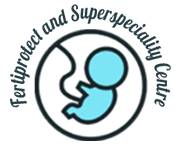For individuals with kidney disease, managing dietary intake is crucial to prevent further damage and maintain overall health. Here are eight foods to avoid or limit:
1.Salty Foods
- Examples: Processed meats (bacon, ham), canned soups, salty snacks (chips, pretzels), and fast food.
- Reason: High sodium content can increase blood pressure and fluid retention, putting additional strain on the kidneys.
2.High-Potassium Foods
- Examples: Bananas, oranges, potatoes, tomatoes, spinach, and avocados.
- Reason: Excess potassium can build up in the blood if the kidneys are not functioning properly, leading to heart problems.
-
3.High-Phosphorus Foods
- Examples: Dairy products (milk, cheese), nuts, seeds, and cola drinks.
- Reason: Elevated phosphorus levels can cause bone and heart issues as damaged kidneys struggle to filter excess phosphorus.
4.Red and Processed Meats
- Examples: Beef, pork, sausage, and deli meats.
- Reason: High in protein and phosphorus, these foods can strain the kidneys and contribute to high blood pressure.
5.Foods High in Added Sugars
- Examples: Sugary beverages (soda, fruit juices), candy, pastries, and desserts.
- Reason: Excess sugar can lead to diabetes and obesity, which are risk factors for kidney disease progression.
6.Refined Carbohydrates
- Examples: White bread, white rice, and pasta made from refined flour.
- Reason: These foods can cause spikes in blood sugar levels, contributing to diabetes and kidney damage.
7.Alcohol
- Examples: Beer, wine, and spirits.
- Reason: Alcohol can dehydrate the body and increase the workload on the kidneys, affecting their ability to filter waste.
8.High-Protein Foods
- Examples: Large portions of meat, fish, and eggs.
- Reason: Excessive protein intake can produce more waste products that the kidneys must filter, potentially worsening kidney function.
Tips for Managing Your Diet
- Read Labels: Check for sodium, potassium, and phosphorus content in packaged foods.
- Consult a Dietitian: Work with a dietitian who specializes in kidney disease to create a meal plan tailored to your needs.
- Focus on Fresh Foods: Fresh fruits and vegetables (within kidney-friendly guidelines), lean proteins, and whole grains.
Conclusion:
By avoiding foods high in sodium, potassium, and phosphorus, and focusing on a balanced diet tailored to individual needs, patients can better manage their condition and improve their quality of life. Dr. Sandeep Morkhandikar emphasizes the importance of working closely with a healthcare provider to create a personalized eating plan. Remember, making informed dietary choices is a crucial step in supporting your kidney health and enhancing your well-being.

